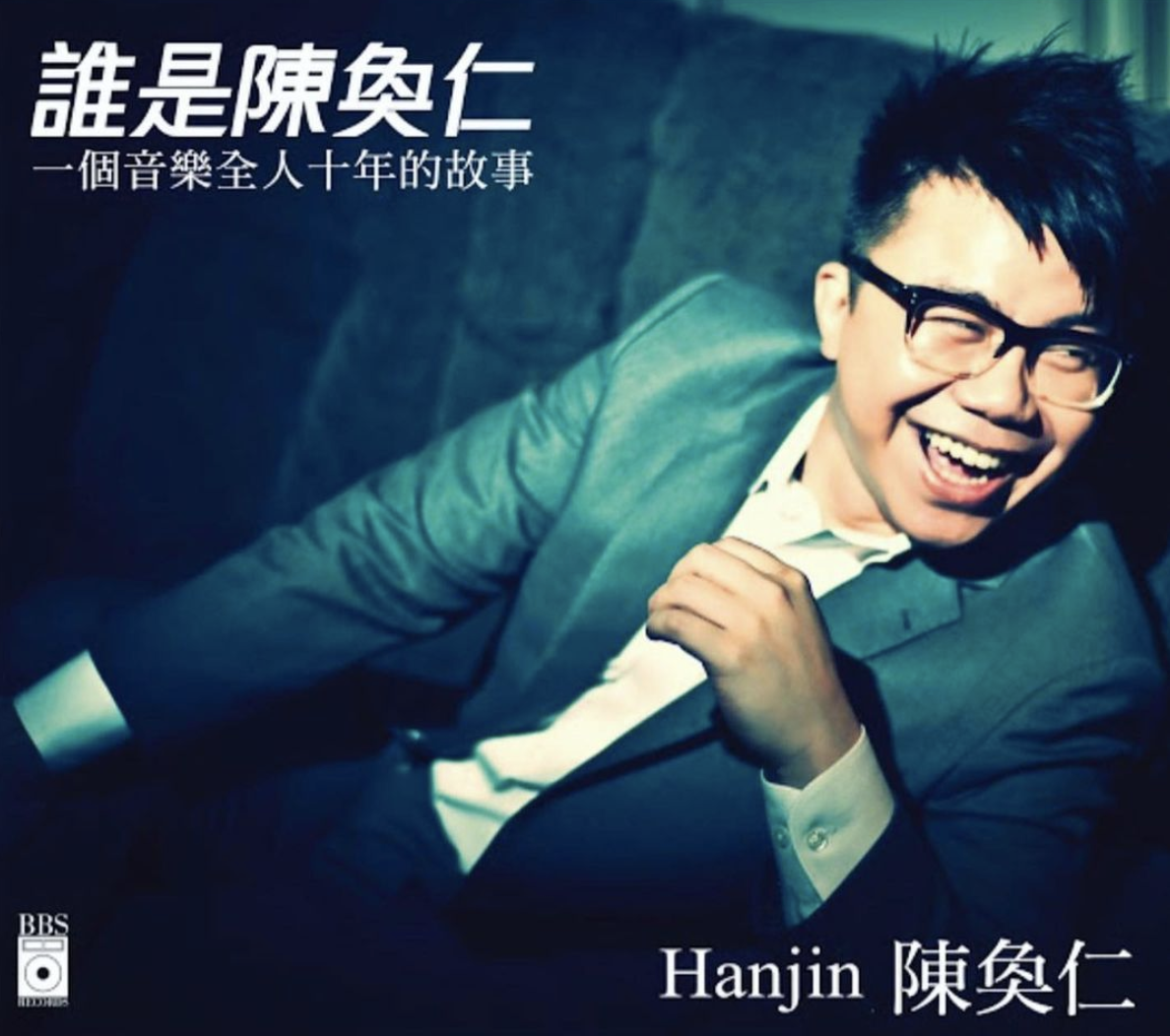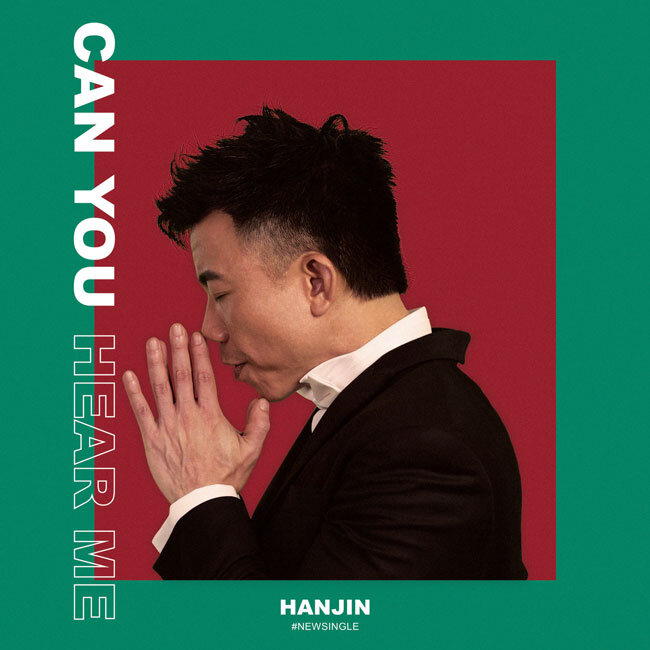Hanjin Tan : Identity Through Music 陳奐仁 :一個音樂人的堅持
Interviewed & Written by Fête Chinoise Team
His productions have earned chart toppers and many awards including: Best Singer/Songwriter, Producer of the Year, Best Jazz/Blues Artiste and Artiste of the Year. On March 11th, 2021, Hanjin dropped the first Chinese music NFT, which makes him the first Chinese musician in the world to drop an NFT.
陳奐仁,唱作藝人,最佳歌手、最佳作曲作詞人、最佳年度製作人,獲獎無數,正在為他的歌迷和亞洲音樂製造一番新景象。祖籍中國海南,操流利英語、粵語、普通話、日語,創作中亦經常反映出陳奐仁獨特的天份及背景。他合作過的巨星包括張學友、陳奕迅、鄭秀文、Christina Aguilera、Rain、李玟、莫文蔚、容祖兒、周杰倫、劉德華、譚詠麟、王力宏、郭富城和黎明等等,名單如銀河沙數。才華洋溢致極,獲樂迷尊稱為「弘音教父」。2021年3月11日,陳奐仁再創先河推出了全球第一個華語加密音樂(NFT),讓他成為了全球第一位推出加密音樂的華語音樂人。
hanjin who 誰是陳奐仁
PHOTO CREDIT: Hanjin tan instagram
Both my parents were brought up in Hainanese families and we are passionate about our heritage. My mom and dad were from different parts of the island, so we have exposure to a mix of different cultures. My brother and I were brought up in a conservative environment where we followed some key principles: be humble, make no trouble, be kind and well-mannered, take care of others and be responsible.
我父母是在海南島不同的地區長大,所以我家融合著不同的文化,亦以這背景為傲。話需如此,父母以身作教,從小灌輸我和弟弟中國傳統的觀念,謙卑有禮、善氣迎人、不惹麻煩、樂於助人、和有責任感是我們遵守的原則。
When I was in kindergarten and primary school, I defined music as what my mother would sing or what we sang in class. When I started swimming classes, music were the sounds in the car on my way to training. I then fell in love with choral music, which is what I sang in choir. It wasn’t until high school that music became something personal. Music was a language that I could speak on my acoustic guitar, and became my instrument of personal expression.
幼稚園及小學時的我,音樂就是媽媽哼的曲、或在學校裡的課堂、游泳班的車程上所聽的聲音,後來,合唱班令我喜歡了詩歌。直到高中,音樂才成為「我」的東西 — 透過結他,音樂就是我的語言,表達情感的工具。
motivatioN & rejection 動力與拒絕
PHOTO CREDIT: Hanjin tan instagram
My greatest motivation to make music is because it is like magic. It made me feel something that did not exist in material form but I felt so strongly about it that it was almost touchable. I wanted to be a part of that magic too. To be able to create that magic for other people is what inspired me.
音樂就像魔法,這是我創作最大動力。音樂無形無實,但我對它的感覺無比強烈幾乎可以觸摸。我最渴望的,是令其他人也感受到音樂的神奇力量。
What motivates me to make music today is slightly different from what motivated me when I was younger. I wanted to be just like my favourite band or artist. I wanted to have songs on the radio. Ultimately, I wanted to prove that I could be that good. I want to make music now because after working hard and amassing a stronger skillset, know-how, and credibility in the industry, I am fully engaged. I want to pursue the essence of the dream, which is to perform.
今天驅使我創作音樂與我年輕時略有不同。年少時,做音樂創作是為名聲,我想成為他人最喜歡的歌者,我想電台聽到我的歌曲,想證明自己有多出眾。多年來,努力工作使我積累了更強的技能、專業知識和信譽。現在的我,為的是一個表演者的夢。
When I started making music, I didn’t realize that performance was the dream. I would approach record labels with my demos in hopes of making a CD and always faced rejection. Their reasons included, “Your face doesn’t match your voice”, and “You’re not commercial enough.” This made me think to myself, could it be that my production quality is not high enough?
剛開始做音樂時,並不明白什麼是表演者的夢。當年,我推介作品給唱片公司時,總是面臨拒絕,回應通常是「你的形象不夠商業化」、「你的聲線和面孔不是理想的配搭」。我曾懷疑過,我的製作質素是否不夠好?
I began performing at bars, pubs, and live houses before I went into production. I thought that if I improved my production quality to international standards, it would help them understand my vision and secure the record label deals. It turns out this was wishful thinking on my part. I simply did not look like the idols they were used to marketing. Labels want to sell music they find familiar and I was making music that was unfamiliar to the Chinese market. Now that I’m older, I realize that I should focus on my initial objective: to make music magical through performance. I should embrace opportunities to hold concerts and tours, with bigger venues and for longer periods.
投身音樂製作前,我曾在酒吧駐唱。那時的我認為只要提升音樂製作質素,唱片公司就會認同我的作品和音樂理念。可惜地,這只是我的單方面的想法。唱片公司會傾向支持一些大眾熟悉的音樂風格,而中華市場對我的風格卻十分陌生。現在的我明白,我應集中精神完成自己的目標,就是透過表演展現音樂的魔力。我應該更加珍惜表演機會,努力令自己的舞台變得更大、更持久。
PHOTO CREDIT: Hanjin tan instagram
MUSIC & CULTURE 音樂與文化
Growing up in Singapore, at least five or more distinct cultures interact with one another on an everyday basis. Over the years as a professional musician, I was exposed to many diverse forms of music that represent distinct cultures as well. When I combine these together, what you get is a mash up of different cultures coming together in sound.
在新加坡長大,每日都會經歷到至少五種不同的地方文化。多年來,我音樂的專業,讓我接觸到不同文化的音樂。當我將這些組合在一起時,那聲音就是多元文化的融和。
PHOTO CREDIT: Hanjin tan website
The role that music plays in Chinese culture can be very big, I imagine. Because I’m a musician, I like to think that what I do is meaningful. But with the greater Chinese community today, music has yet to come to the forefront because music is not an immediate need. It is not a priority because what comes first are the bare necessities. Only after these needs are met, do we think about the arts and culture. Music and other art forms are just beginning to flourish. I am optimistic, but I think it’ll still take a little while.
我可以想像,音樂在數千年的中華文化佔據了一個很重要的位置。作為音樂人,我相信自己的工作是有意義的,但也明白華人社會上,音樂的需求是次於生活的基本需要。藝術和文化儘管是生活次要,音樂和其他藝術正開始蓬勃發展。我看好華人音樂的前景,不過明白發展仍然需要一些時間。
To add to that, there is another dimension to my music which is to create awareness for important causes, such as positivity and poverty. I’m starting to feel the need to participate in charitable activities to promote awareness for such causes. The main thing that I want to share is that a lot of us already have the basic human needs covered (such as food, health, and shelter), why aren’t we happy though? If I could, through my efforts, help everyone be happier for just one more minute, then that would be enough of a goal for me. Hopefully my music is a vehicle for that.
除此之外,我的音樂還有另一個意義,就是社會公益使命。其實,我們很多人已經無憂生活的基本需要(例如食物、健康和住所),但為什麼我們仍然不快樂?就算有齊生活基本所需,社會上很多人仍然感到不快樂。我希望透過我的音樂,可以帶給社會多一點正能量、多一點和諧。讓每個人多開心一分鐘,那對我來說就足夠了。
PHOTO CREDIT: Hanjin tan website
My main language is English as I think in English. Mandarin would be second, Cantonese, and then Japanese. Being fluent in languages is useful in terms of communication. Speaking someone else’s language is a sign of respect and consideration for their culture. By speaking Cantonese, I’m being considerate to the southern parts of China and Hong Kong. By speaking Mandarin, I’m being considerate to the Mandarin-speaking people. By speaking English, I’m doing the same to English-speaking cultures. Musically, does it really help? It helps that I can write Mandarin lyrics because I’m working in the Mandarin/Chinese music industry. But there are many artists who don’t have a good grasp of the language, and yet they are famous and doing well. Language, then, is not the key to success in music.
我的母語是英語,其次是普通話、廣東話、日語。我覺得懂得善用不同的語言對溝通很有幫助。學懂用別人的語言交流是對他們文化的尊重,而我想用不同的語言創作音樂,令不同的人也體會到我的音樂。但也有很多知名音樂家,雖然語言不通,他們做的音樂依然暢銷。因此,語言並不是音樂成功的絕對關鍵。
Still, if there is a particular message you want to convey through music and promotional activities, then language becomes very important. If you want to deliver to Mandarin speaking audiences and your Mandarin is not strong enough, then it will be difficult. Your message is limited by the fluency of the language, but the basic ideas can still be delivered in simple language. I think the point here is that language is not the essence of communication. The essence of communication is clarity. As long as we understand what we’re trying to say and we are very deliberate about what we want to communicate, all we need is very simple language. If everybody can understand that, then the world will be a much better place. I, myself, am working very hard to learn to do that right now.
PHOTO CREDIT: Hanjin tan instagram
儘管如此,如果想通過音樂和促銷活動傳達準確信息,那麼語言就變得非常重要。如果你想傳達給普通話的觀眾,而你的普通話不夠強,你的信息便會不夠傳神、或詞不達意。我認為流暢地善用語言有助信息溝通的準成。非常簡單的語言也可以清晰傳達信息。如果每個人都能理解這一點,那麼世界將變得更加美好。我自己正在努力地學習如何做得更好。
In 2016, I released a new album called 《One Man Band 不求人大樂隊》, defined as a band that doesn’t require the help of others. Basically, this album goes back to the core elements of my first stage: just me and my guitar in pubs and clubs. Now I’ve added another element into the mix: a loop pedal. What a “looper” does is it records what you play on the guitar and microphone and gives you the ability to recall it at specific points in the song. So I can easily create layers and arrangements. Essentially, it allows me to create the audio effects of a 10-man band by myself, which is why the album is called “One Man Band.” The message is very simple: there are things we can do ourselves. When we can do it ourselves, we should strive to do so. If we don’t have to ask for help, then we don’t. We should just get it done and do it as well as possible and get it as far as possible on our own. We owe it to ourselves to do it because nobody else in life owes it to us and that’s the way society works. That’s the key message: to be independent.
2016年,我發行了一張反傳統專輯,名為《不求人大樂隊》,專輯記錄我的音樂倒回到最初我在酒吧駐唱時的感覺。我自己一個人包辦曲詞編曲監制混音錄音和聲及樂器演奏,另外,整張專輯只用上一把結他和循環器,自彈自唱,配合 Beat Box 以及人聲詮釋多種樂器,『一個人,不求人』可以做出十人樂隊演奏的效果。錄制這種獨特的演出方式,亦比一般專輯的制作更具挑戰性。一般的專輯,錄音後往往會由剪接師作後期加工,掩飾瑕疵。但這張專輯的錄音方法根本不容許有瑕疵出現,因為是一次過從頭到尾 one take 不作任何剪輯的演出/錄音。
我想表達的信息其實很簡單:『如同人生,無法重來!』— 我們應該獨立地對自己的生命負責任,要靠著自己的力量建立我們所想的,因為別人的幫忙並不是理所當然的。
PHOTO CREDIT: Hanjin tan website
About the Interviewee, Hanjin Tan
Hanjin Tan is a celebrity singer-songwriter-producer-actor who is making a difference in the music scene in Asia and for his fanbase around the world.
sponsored by Ferris Wheel Press.










